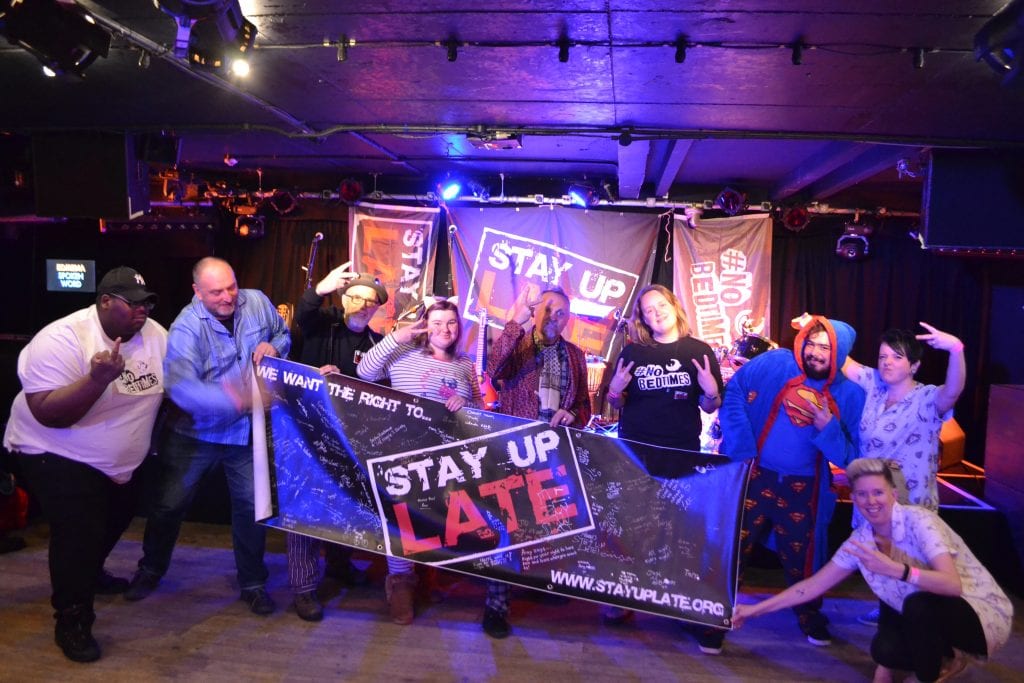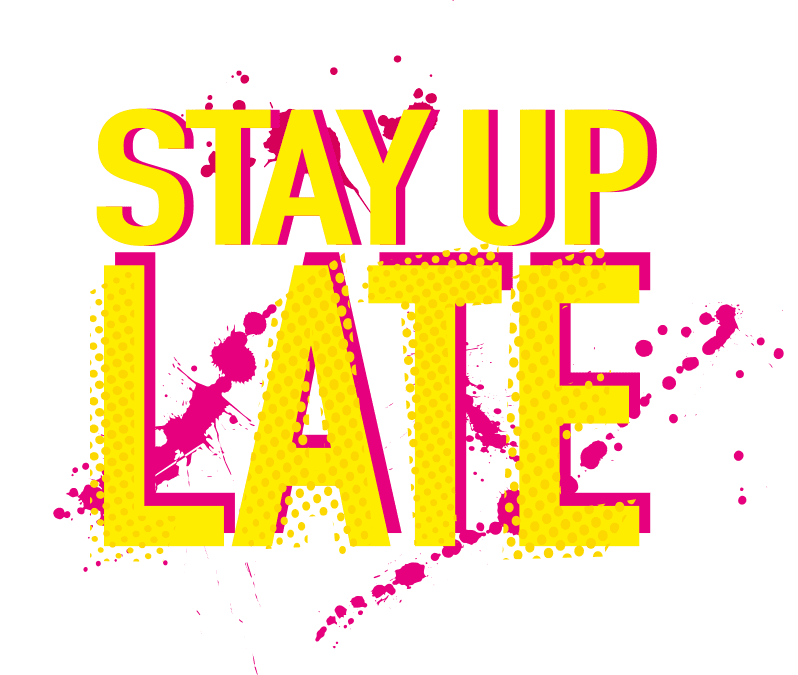
Our new year’s resolution – not to be part of the problem
We’re not going to advertise events that stop before 10pm – here’s why
Recently we had our Gig Buddies partners day, it was incredible to share a day with people who are all committed to furthering our work and enabling more and more people with learning disabilities to lead active social lives and making lasting friendships based on what they love doing.
 During the day Daniel and Darren spoke about the work they’ve been doing to establish a campaigns network and it led to an interesting discussion about learning disability club nights. As a charity we’ve been big supporters of these club nights over the years but the discussion went on to whether these could be creating a problem.
During the day Daniel and Darren spoke about the work they’ve been doing to establish a campaigns network and it led to an interesting discussion about learning disability club nights. As a charity we’ve been big supporters of these club nights over the years but the discussion went on to whether these could be creating a problem.
They also told us about this Tweet (this is a from a genuine Tweet which an event asked us to share! (We didn’t share it)
“no need to ‘Stay Up Late’ as it’s in the Daytime 2-4pm!”
Why does a good night out have to stop at 9pm?
What we love about inclusive nights is that they create a great place for people to meet their friends and socialise but we’ve noticed a worrying trend that more and more are finishing earlier. The extreme was last year hearing about a ‘club night’ in Scotland that finished at lunch time!
Why you should stay open even if there’s hardly anyone there
We understand why this happens, when we were part of running the Kiss My Disco nights there would be a handful (at best) of hardcore party starters left on the dance floor at 10.30pm but our rule was always to create an opportunity for people to stay up late if they wanted to.
What we also hear is that support workers are turning up earlier to nights as well and asking to come in while they’re still being set up. This shouldn’t be the way it works – it doesn’t work like that when you go out to a regular gig after all. You can’t ask the band if you can watch their soundcheck, and while they’re at it would they mind performing earlier so you can see their whole set and still be home by 10pm!
So what can we do?
We talked about using our Gig Buddies partners as a network of campaigners to do more about this and speak up in their localities but it got me thinking that we’ve not always been helping by sharing events that we don’t actually think are sending out the right messages.
We appreciate that some nights have to end at 9.30pm (The Rock House in Brighton) because there’s a club night straight after in the same venue, and that can’t be helped.
But more and more seem to be starting at 6pm and ending at 9pm (some even earlier) and we think that by doing this we’re allowing the bar to be set lower and lower for people with learning disabilities.
We heard of a regular ‘night’ (or late afternoon as we like to call it) in Wales which starts at 4.30pm and ends at 6.30pm. It sounds like a great night too, it’s well attended and loads of students go too so it sounds as though they have everything in place to shift attitudes. If they could just shift the whole thing by 4 hours later in to the evening it would make all the difference. Just 4 hours.
Why are things so different for adults with learning disabilities?
This of course isn’t a question which is just limited to clubbing, it cuts across many life experiences for people with learning disabilities but this is just one way in which we can try and change the way we think about things. Otherwise all we’re saying is “that’s the way it is for people with learning disabilities and that’s that”.
We don’t believe this is right and that people with learning disabilities should have the opportunity to stay up late, dance, snog, and drink (in whatever order they choose).
It’s easy to perhaps forget the impact that this has not only on the clubbers but also the organisers. DJ Chris Love explains this in his short video:
What we’re going to do about it
As of the new year we’re going to have some new rules about our events listings:
- We will only advertise events that advertise that they end at least by 10pm (and we don’t think that’s late)
- If there’s a good reason (like the venue has a back to back booking) then we will advertise your event
- In return anyone running a night that ends by at least 10pm can display the Stay Up Late logo on their event posters if they want to.
Developing the campaigning network
We’d also love to talk more with people organising club nights about how we can use these to develop the campaign to support more people to stay up late.
Ideas are:
- Exit surveys
- Mystery shopping
- Demonstrations
- Working with support providers to find solutions
- Or do what we did at our recent night and all turn up wearing your pyjamas
- And of course get some of our ‘No Bedtimes’ campaign materials.
That’s our new year’s resolution as a charity
Every night that we share and endorse on our events listings and social media will be ones that actively promote the right for people with learning disabilities to stay up late.
We appreciate that this might annoy some good people putting on club nights but unless we lead on saying something about this our worry is that events will get earlier and earlier and shorter and shorter.
So if you’re running a club night with people with learning disabilities can you make sure that clubbers at least have the opportunity to stay up late? 10.30pm isn’t that late after all but that extra hour can be all the difference in making it a great night out.
If you’ve got thoughts on this we’d love to hear your comments. Please post them below.



